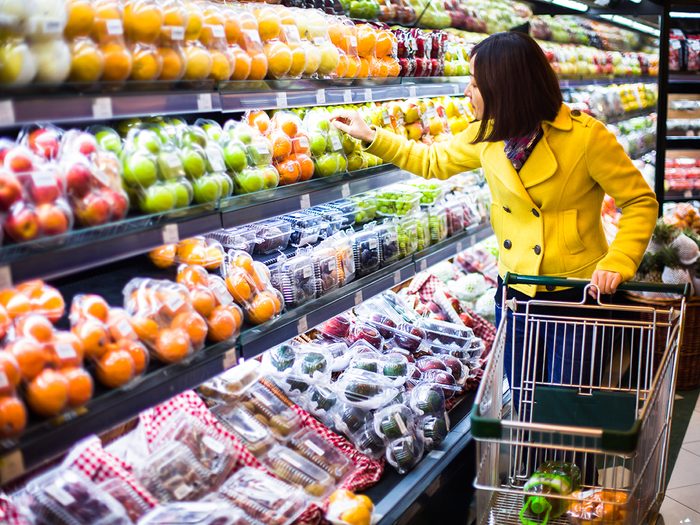
The highest antioxidant foods you can buy
Let’s face it, fruits and veggies can be a little pricey—plus they tend to go bad in a hurry. If you want to spend wisely, aim for the most concentrated sources of antioxidants—which you can now identify thanks to food scientists at the Human Nutrition Research Center on Aging at Tufts University. Read on to discover the highest antioxidant foods, according to researchers.
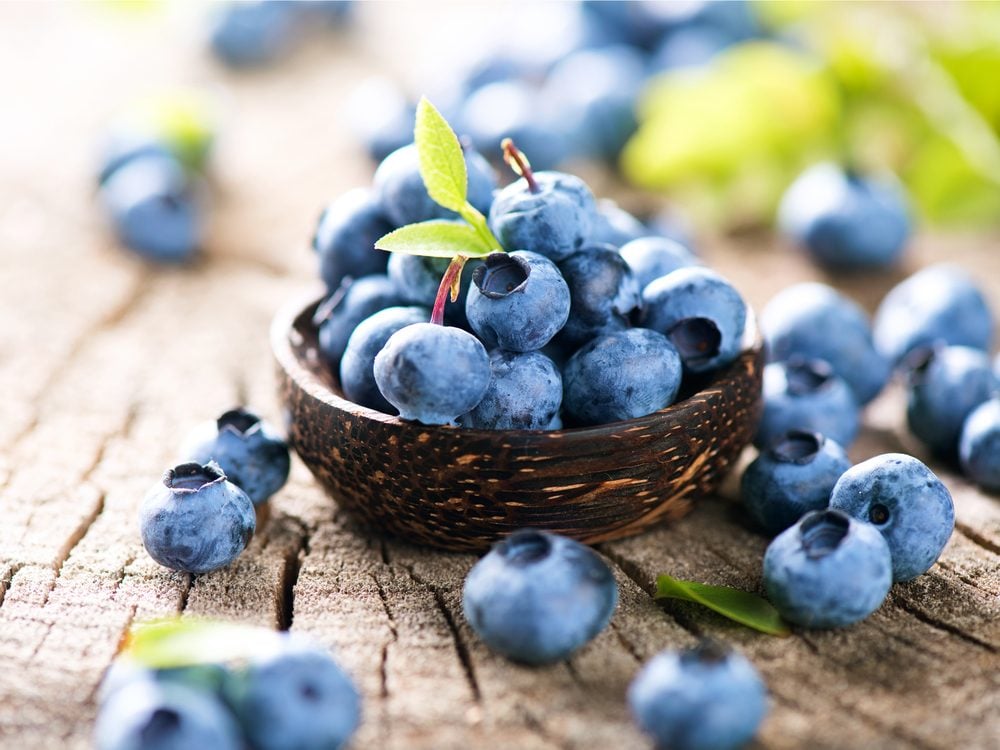
Blueberries
Blueberries have more antioxidants—those magical molecules that can help prevent a host of maladies—than 40 other common fruits and vegetables. Eating one cup of wild blueberries will provide 13,427 total antioxidants, about 10 times the USDA’s recommendation. The farmed variety will give you 9,019 per cup.
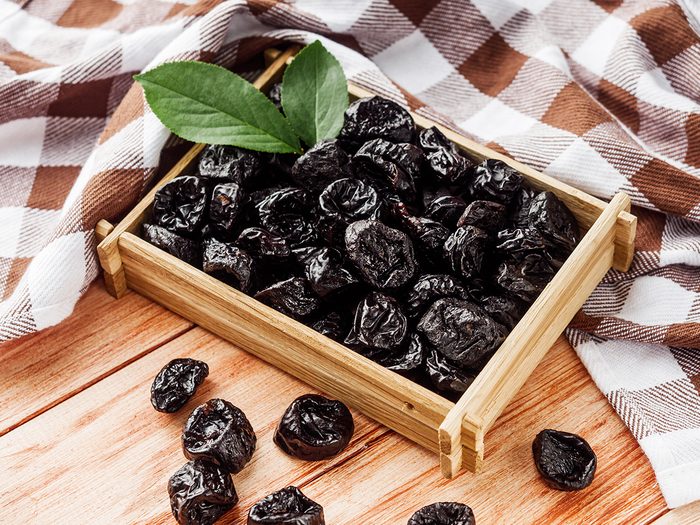
Prunes
Black plums have 4,873 total antioxidants, according to a study in the Journal of Agricultural and Food Chemistry. Their dried counterpart, prunes, pack 7,291 into just half a cup.
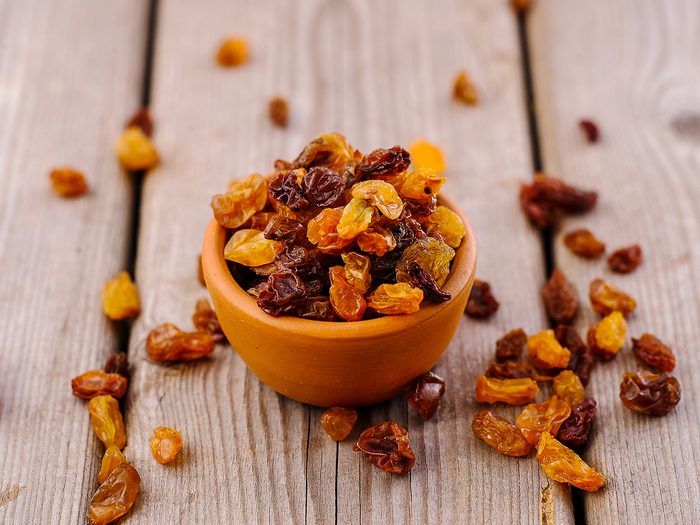
Raisins
Similarly, red grapes have 2,016 total antioxidants per serving, and raisins contain 2,490.
Find out 20 foods that may help lower blood pressure.
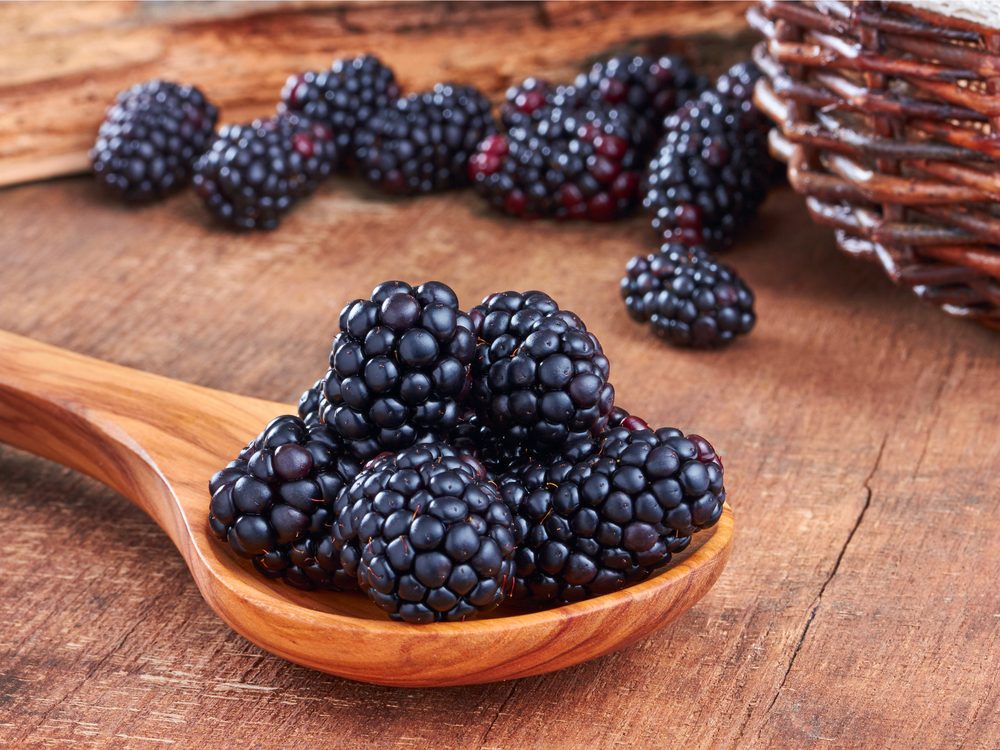
Blackberries
Blackberries are rich in antioxidants, but you should also know that they’re packed with polyols, the main component in sugar substitutes (which are often blamed for abdominal issues such as gas).
Discover more surprising reasons you’re bloated—and what you can do about it.
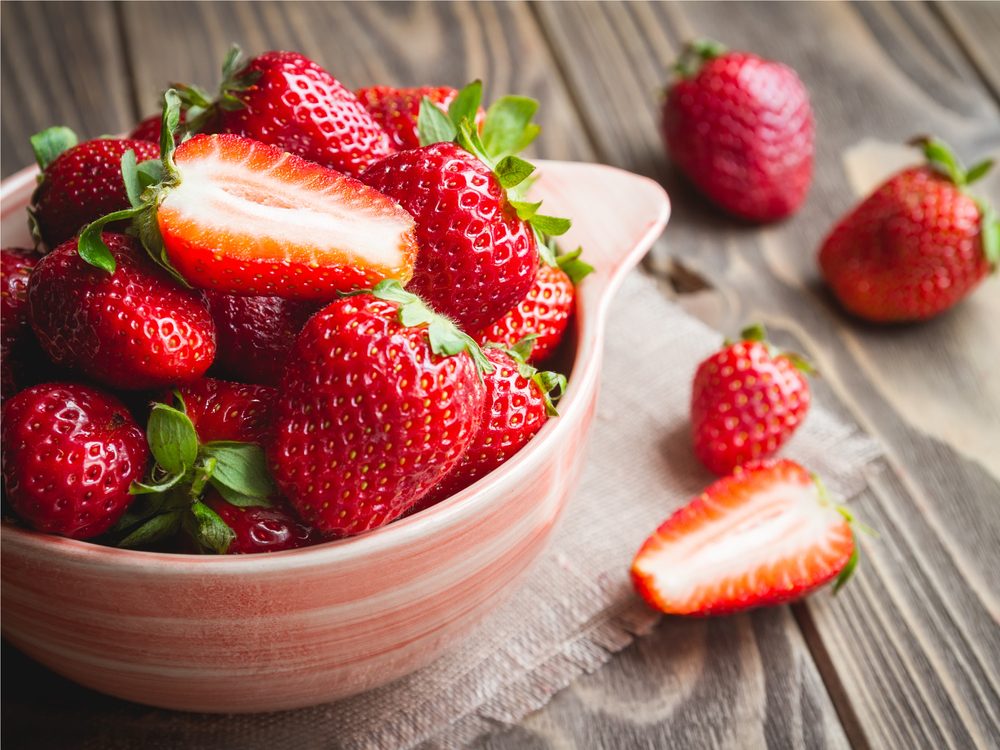
Strawberries
Like blueberries and raspberries, strawberries are high in antioxidants, which protect healthy cells from many cancers.
Find out which fruits and vegetables you need to stop peeling.
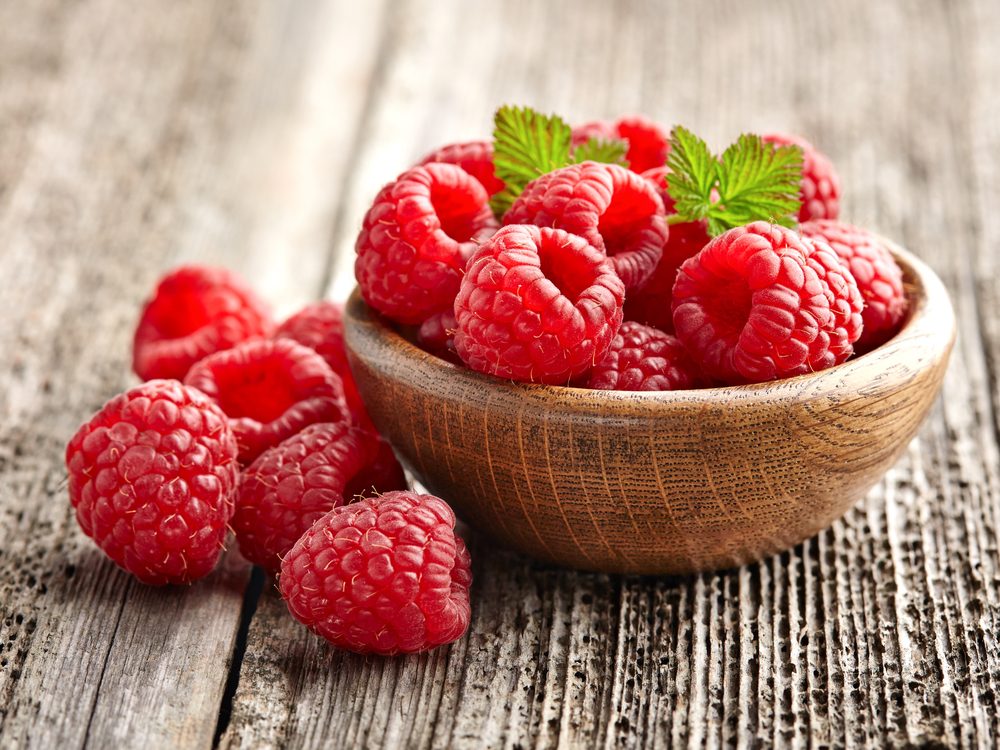
Raspberries
Make your portion more powerful: A study in the Journal of Nutrition determined that the antioxidant ellagic acid (found in raspberries, pomegranates, walnuts, and cranberries) enhanced the ability of quercetin (an antioxidant found in apples, grapes, onions, and buckwheat) to kill off cancerous cells.
Don’t miss our ultimate guide to healthy grocery shopping.
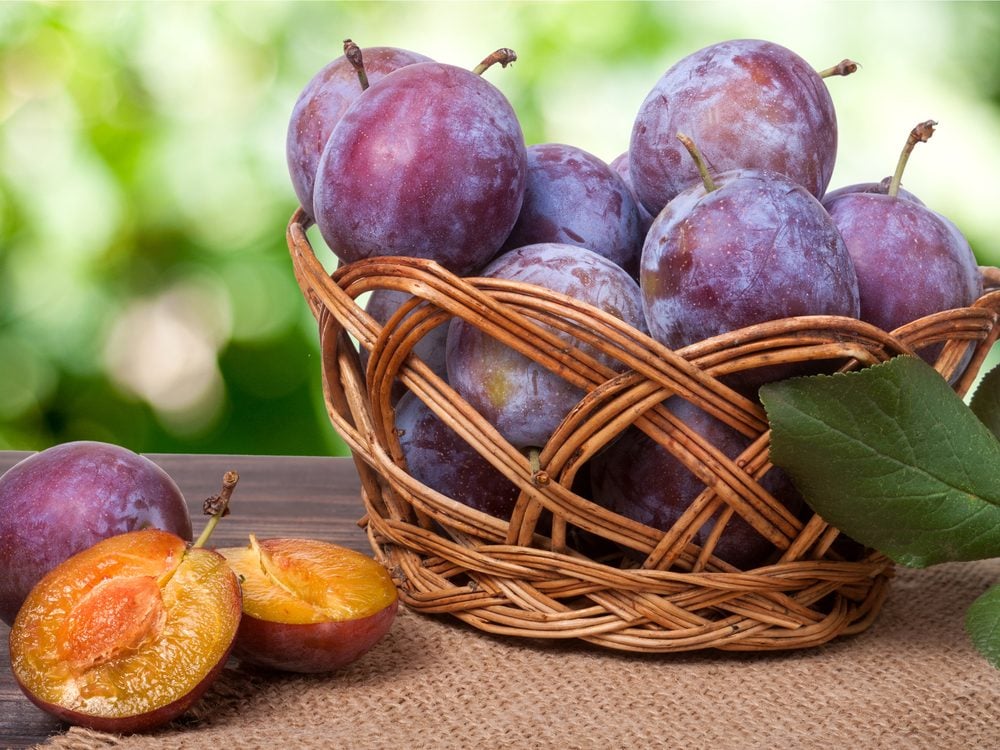
Plums
Pick the black kind to get 4,873 antioxidants per serving. Dried plums (prunes) offer slightly more.
Here’s how to pick the best fresh fruit in the produce aisle.
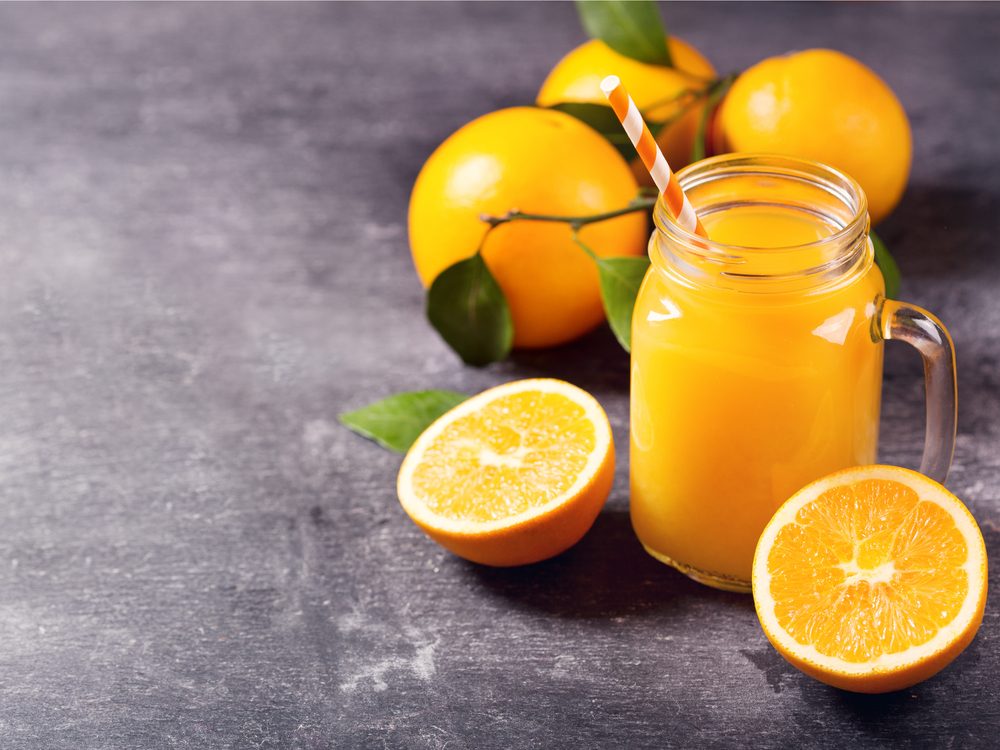
Oranges
Oranges, along with mangos, peaches, and watermelon, are rich in beta-cryptoxanthin, an antioxidant and one of a pair of compounds that lowered the risk of arthritis by an impressive 20 to 40 per cent in a UK study of 25,000 people.
These are the groceries that are worth buying organic.
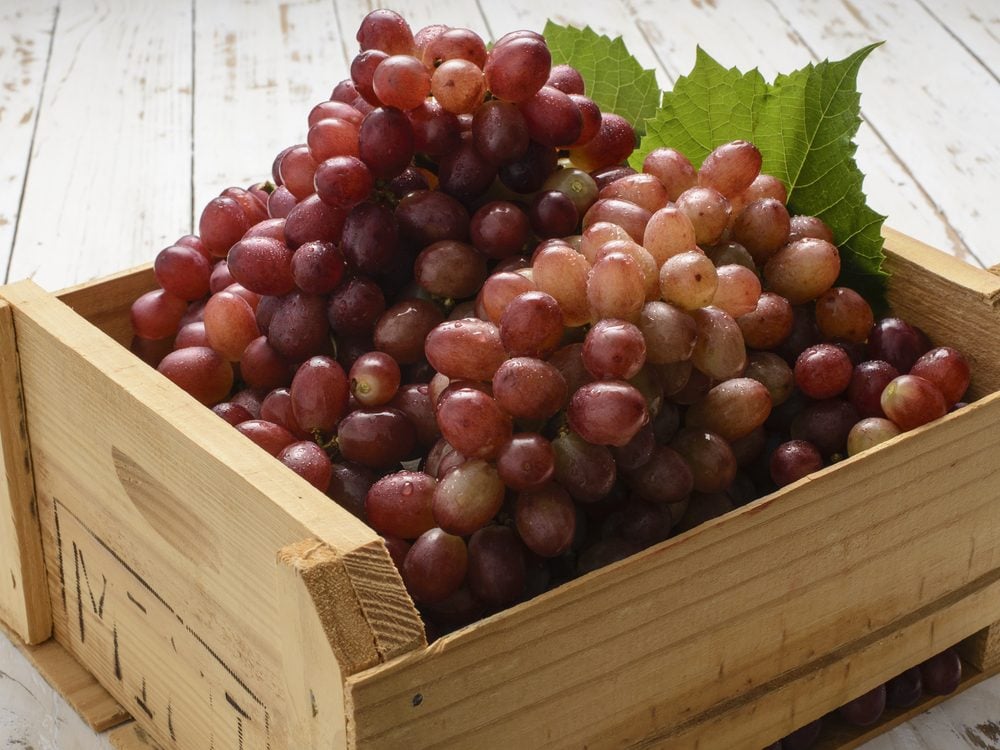
Red Grapes
Enjoy this healthy, low-calorie snack: You can eat 20 red seedless grapes and still consume only 100 calories.
Discover 10 simple tricks to cut calories.
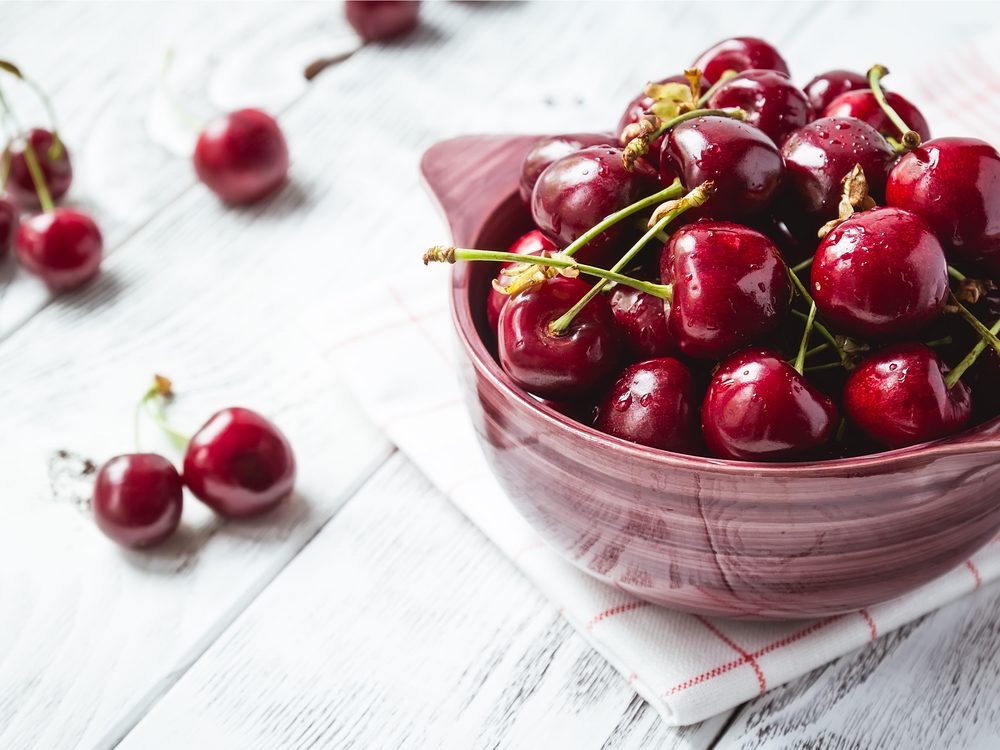
Cherries
Juicy and tart Montmorency cherries are your best source of the antioxidant melatonin. Other cherries have it, too, but Montmorency has the most. Melatonin protects the skin against ultraviolet radiation. Researchers have discovered that this powerful little nutrient also helps repair sunburned skin, since it stimulates new skin-cell growth. Cherries are also packed with vitamin C, which is needed to build collagen—your skin’s natural “scaffolding” and a wrinkle preventer.
Here are the best foods for healthy, glowing skin.
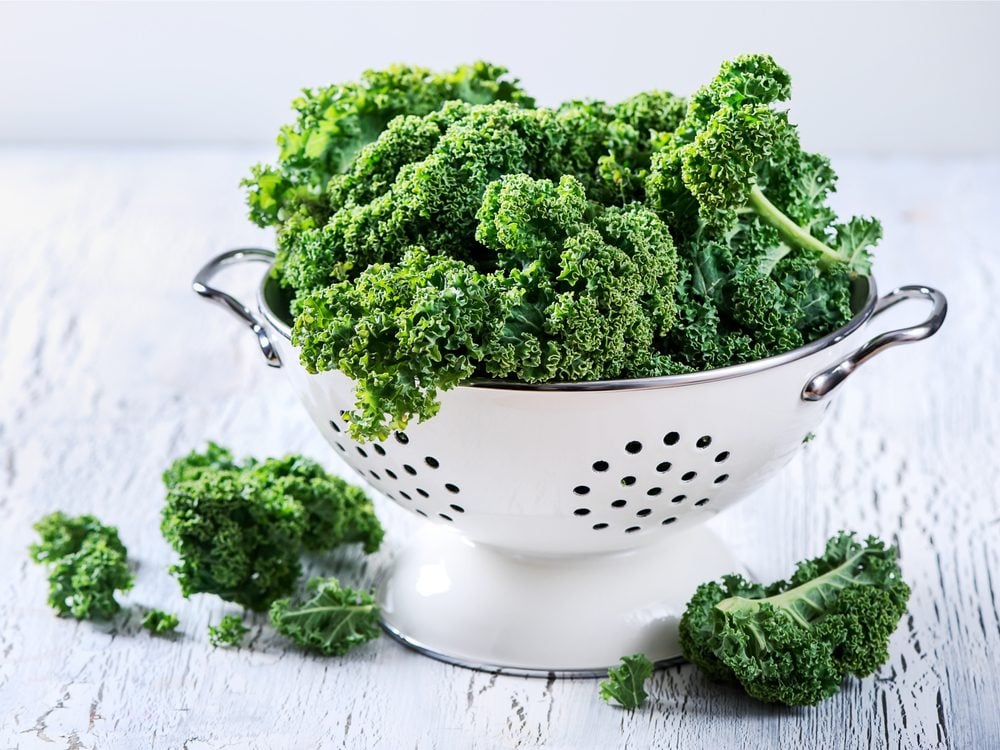
Kale
Rich in cancer-fighting antioxidants and vitamins, kale is also a good source of beta-carotene and is the top combo of both lutein and zeaxanthin.
Discover 14 food parts you need to stop throwing out.
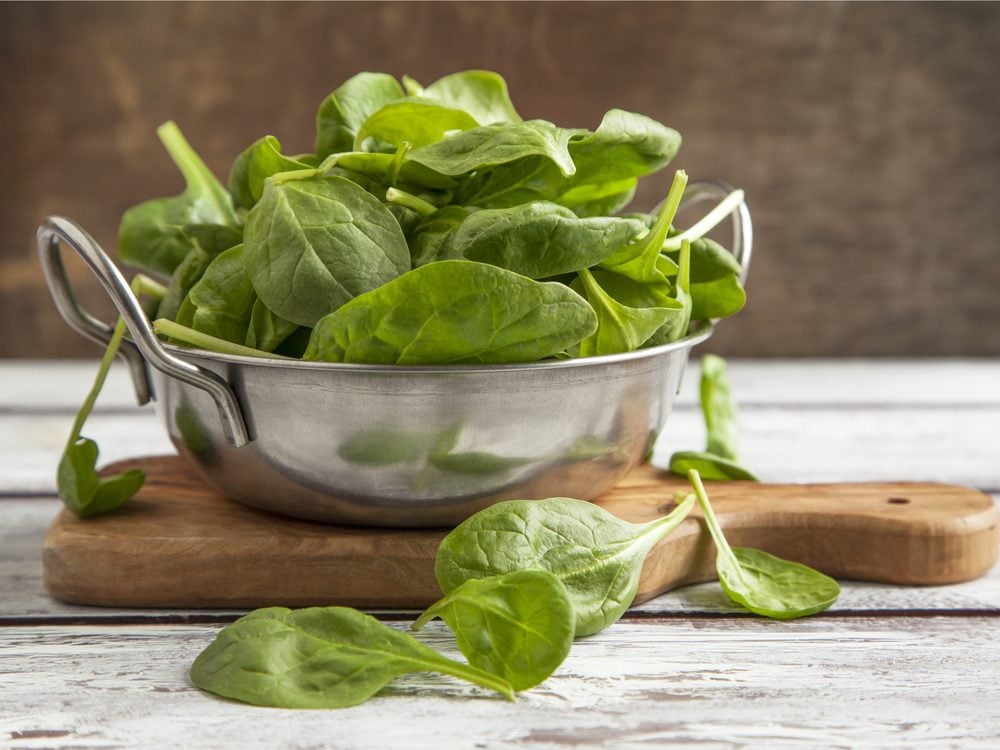
Spinach
Spinach is packed with carotenoids—antioxidants that promote healthy eyes and help prevent macular degeneration, the leading cause of blindness in older people.
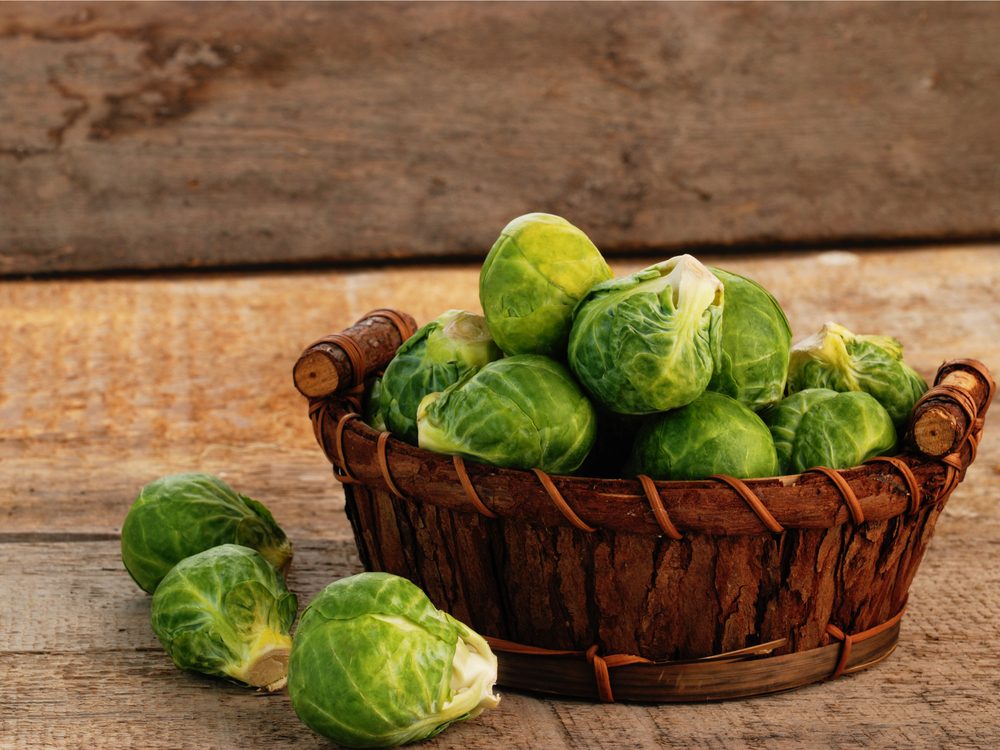
Brussels sprouts
These broccoli cousins have plenty of bitter sulforaphane as well as compounds called isothiocyanates, which detoxify cancer-causing substances in the body before they can do their dirty work. In one Dutch study, guys who ate brussels sprouts daily for three weeks had 28 per cent less genetic damage (gene damage is a root cause of cancer) than those who didn’t eat sprouts.
Learn to spot the signs you’re not eating enough vegetables.
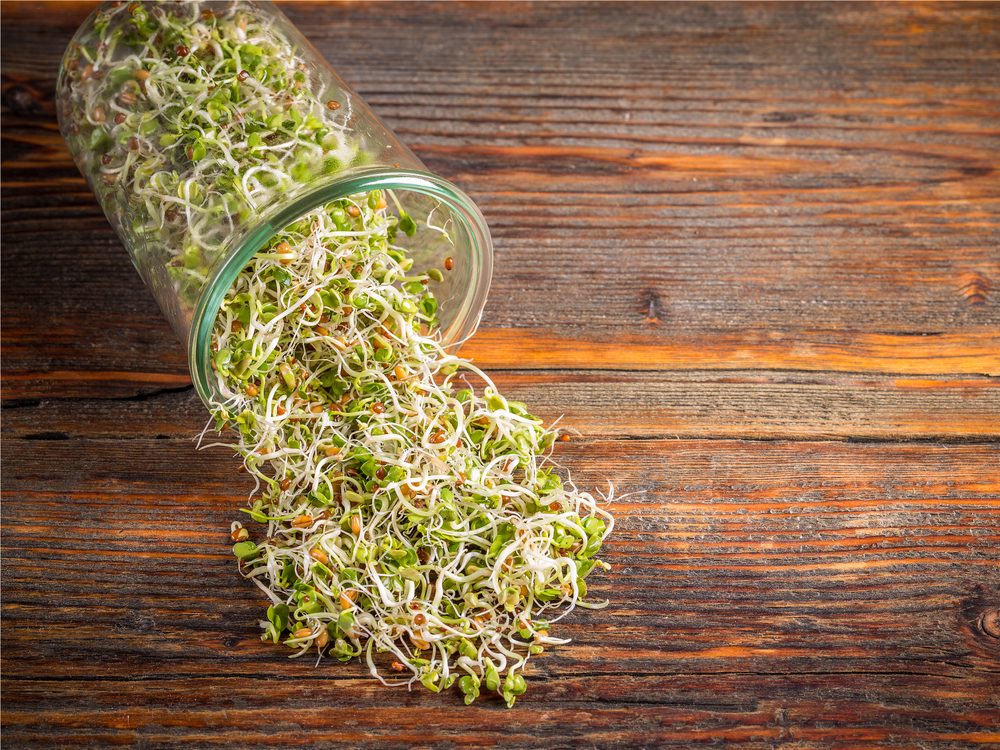
Alfafa sprouts
This tiny powerhouse is rich in beta-carotene, an antioxidant that protects against lung cancer and helps maintain healthy skin, hair, nails, gums, glands, bones, and teeth. Alfalfa sprouts are also a good source of vitamin E, which may help prevent heart attacks, stokes, and lower the risk of death from bladder cancer.
Here are 13 essential vitamins your body needs to stay healthy.
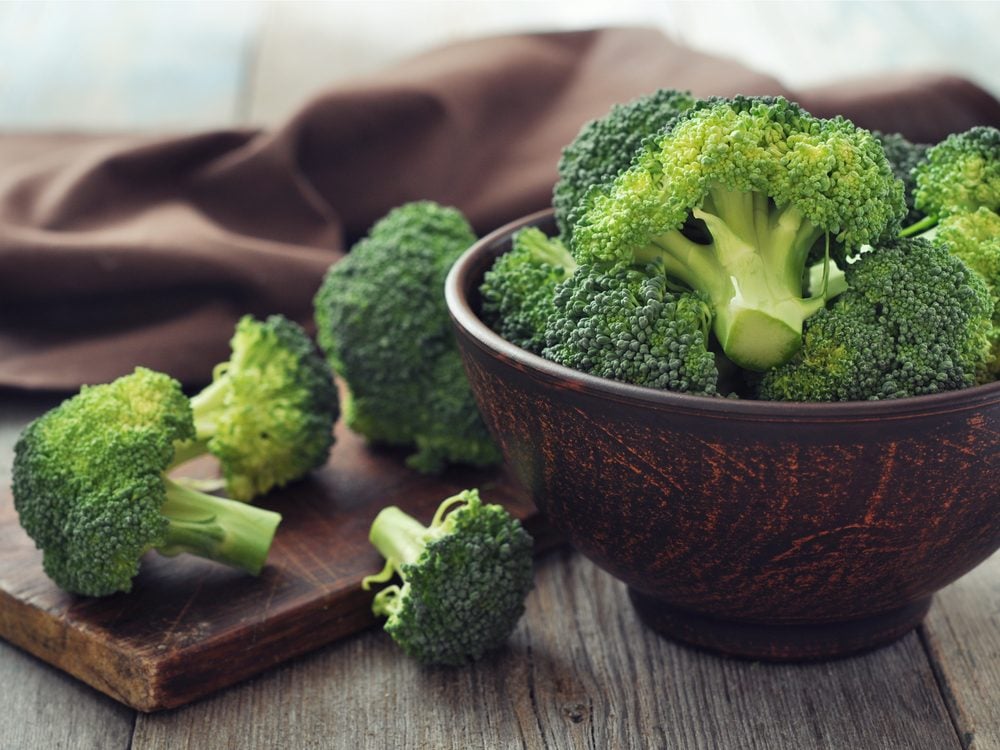
Broccoli flowers
Broccoli is full of cancer-fighting antioxidants. A 2018 study in Molecular Nutrition & Food Research found men who ate 5 servings or more per week of cruciferous veggies like broccoli were half as likely to develop bladder cancers over a 10-year period as men who rarely ate them.
Discover the best foods to boost your metabolism.
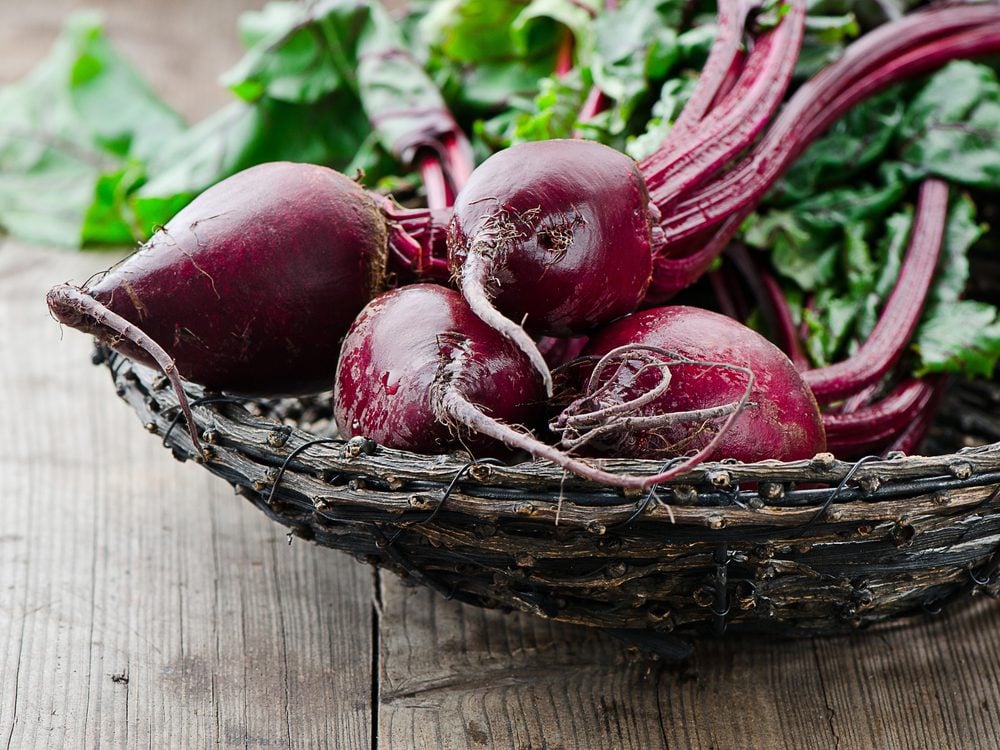
Beets
Beets are packed with healthy nutrients, like five essential vitamins, calcium, iron, potassium, and protein. Learn more about the amazing health benefits of beets.
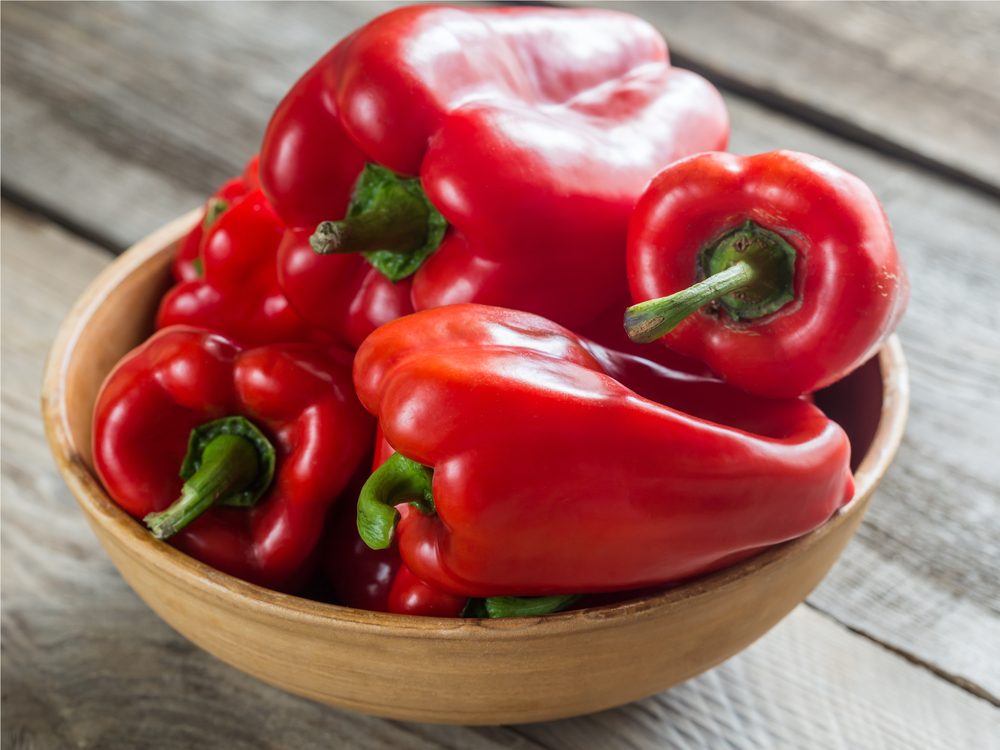
Red bell peppers
One medium pepper is light on calories (only 32!) but heavy on vitamin C, providing 150 per cent of your recommended daily value and warding off atherosclerosis, which can lead to heart disease.
Find out how it’s possible to reverse heart disease.
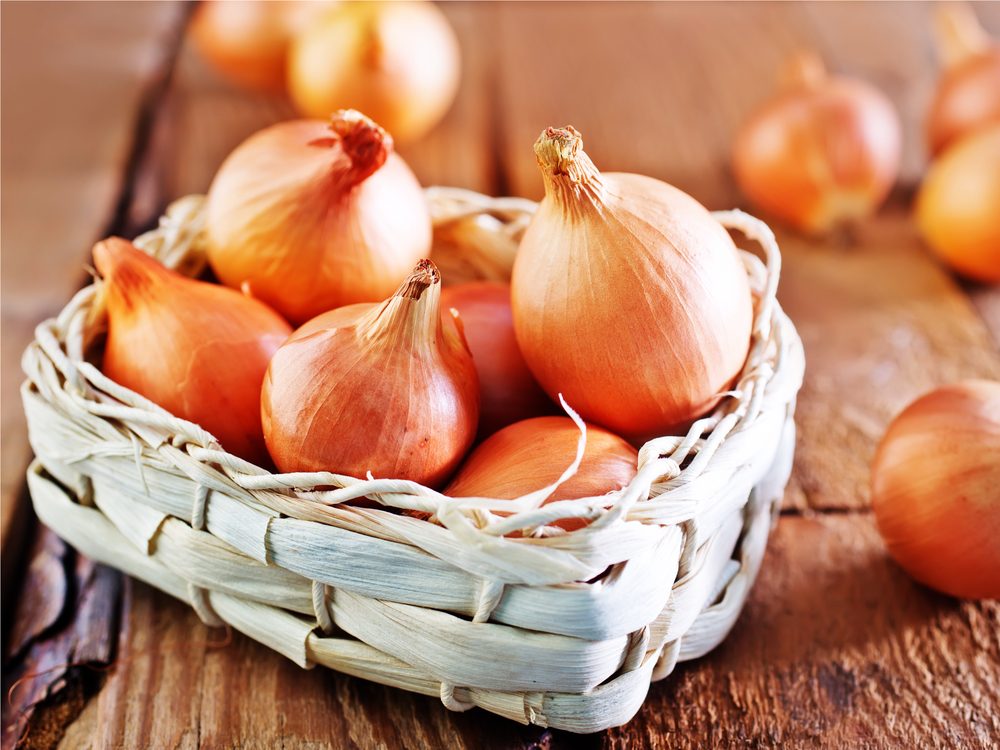
Onions
You’ll get the most out of this veggie’s cancer-fighting antioxidants by eating it raw; cooking onions at a high heat significantly reduces the benefits of phytochemicals that protect against lung and prostate cancer.
Here are more foods you should be eating raw.
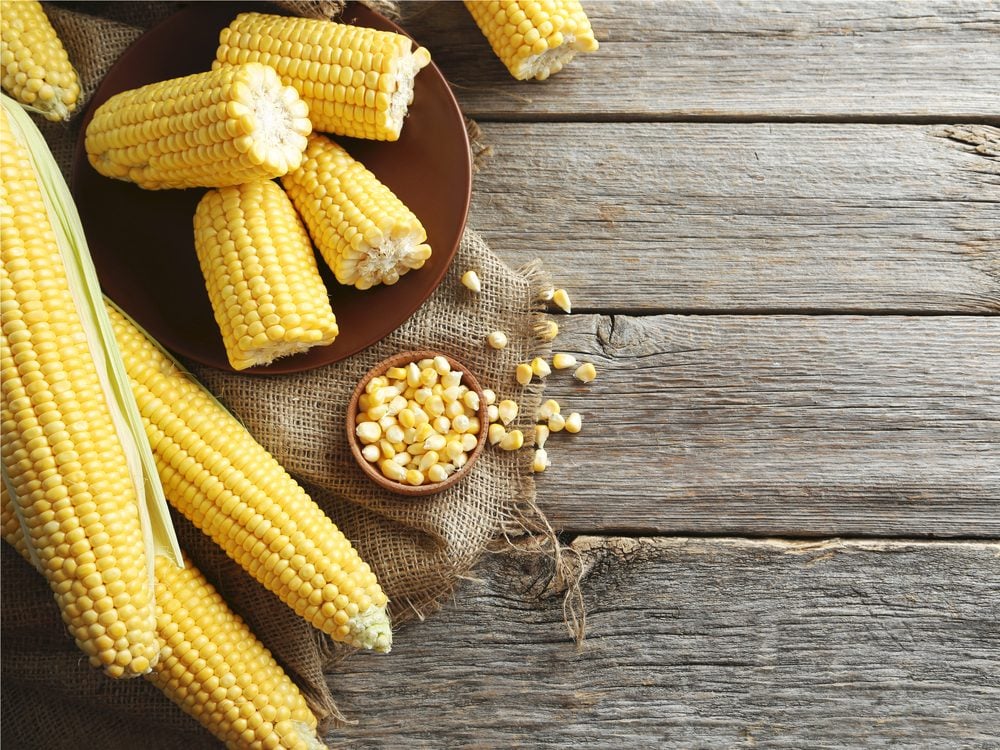
Corn
A study in the Journal of Agricultural Food and Chemistry found that the longer corn was cooked, the higher the level of antioxidants like lutein, which combats blindness in older adults.
Find out 14 foods everyone over 50 should be eating.
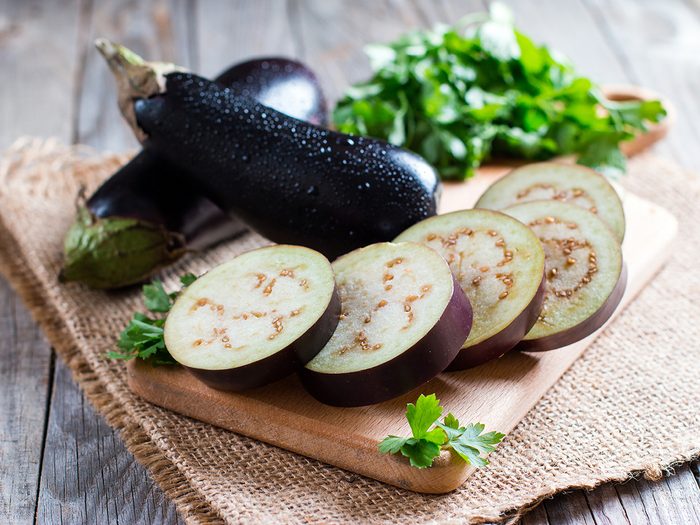
Eggplant
All types of eggplant are rich in bitter chlorogenic acid, which protects against the buildup of heart-threatening plaque in artery walls (and fights cancer, too!). In lab studies, eggplant lowered cholesterol and helped artery walls relax, which can cut your risk of high blood pressure.
Now that you know the highest antioxidant foods you can buy, find out the healthiest fish to eat.